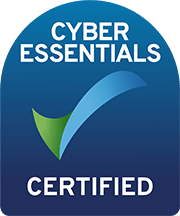New Job Support Scheme (JSS) – JSS Closed
Employers have been legally required to close their premises as a direct result of coronavirus restrictions set by one or more of the four governments of the UK. For these businesses, the Job Support Scheme, through JSS Closed, will help them through the period that they are directly affected by these restrictions by supporting the wage costs of employees who have been instructed to cease work in eligible (closed) premises.
Each employee who cannot work due to these restrictions will receive two thirds of their normal pay, paid by their employer and fully funded by the government, to a maximum of £2,083.33 per month, although their employer has discretion to pay more than this if they wish. Employees may also be entitled to additional financial support, including Universal Credit.
Who can claim JSS Closed
In addition to the general Job Support Scheme eligibility criteria, employers are eligible to claim JSS Closed if their business premises at one or more locations has been legally required to close as a direct result of coronavirus restrictions set by one or more of the four governments of the UK. This includes premises restricted to delivery or collection only services from their premises and those restricted to provision of food and/ or drink outdoors.
Businesses premises required to close by local public health authorities as a result of specific workplace outbreaks are not eligible for this scheme.
Employers are only eligible to claim for periods during which the relevant coronavirus restrictions are in place. Employers will not be able to claim JSS Closed to cover periods after restrictions have lifted and the business premises is legally allowed to reopen. They may then be able to claim JSS Open if they are eligible.
This is not a complete list of all the conditions for eligibility for JSS Closed and further guidance will be published by the end of October.
Employees who cannot work because of closed premises who can be claimed for under JSS Closed
Eligible employers will be able to claim the JSS Closed grant for employees:
- whose primary work place is at the premises that have been legally required to close as a direct result of coronavirus restrictions set by one or more of the four governments of the UK
- that the employer has instructed to and who cease work for a minimum period of at least 7 consecutive calendar days
This is not a complete list of employee eligibility requirements for JSS Closed and further guidance will be published by the end of October.
JSS Closed temporary working agreements
Employers should discuss with their staff and make any changes to their employment contract by written agreement. When employers are making decisions in relation to the process, including deciding who they should instruct to cease work, equality and discrimination laws will apply in the usual way.
To be eligible for the grant, employers must have reached written agreement with their employee (or reached written collective agreement with a trade union where the relevant terms are determined by collective agreement) that they have been instructed to and agree to stop working for a minimum of 7 consecutive calendar days. The agreement must be available for view by HMRC on request.
Employers must maintain records relating to the terms of these arrangements for each employee. They must:
- notify the employee of the agreement in writing
- make sure that the agreement is consistent with employment, equality and discrimination laws
- keep a written record of the agreement for 5 years
- this agreement must be made available to HMRC on request
The employee must agree to the new arrangement.
Conditions of claiming
There are a number of conditions that apply to all employers using the Job Support Scheme. The conditions apply to all employers claiming JSS Open and JSS Closed unless stated.
- Redundancy
Employers cannot claim for an employee who has been made redundant or is serving a contractual or statutory notice period during the claim period.
- Shareholder distributions
The government expects that large employers (250 or more employees) and their corporate groups using the scheme will not make capital distributions whilst claiming the Job Support Scheme grant. This includes:
- dividend
- charge
- free or other distribution
- any equivalent payment that a partnership may make to its partners
The government does not plan to make this expectation a contractual or legal condition of the scheme but encourages business to reflect on their responsibilities and that taxpayers should be able to rely on public money only being claimed where it is clearly needed.
- Paying employee taxes and pension contributions
The Job Support Scheme grant will not cover National Insurance contributions (NICs) or pension contributions. These contributions remain payable by the employer.
Employers must deduct and pay to HMRC income tax and employee NICs on the full amount that is paid to the employee, including any amounts subsequently met by a scheme grant.
Employers must also pay to HMRC any employer NICs due on the full amount that that is paid to the employee, including any amounts subsequently met by a scheme grant.
Employers must report these payments via a Full Payment Submission (FPS) to HMRC on or before the pay date in the normal way.
Employers and Employees must also still pay pension contributions in accordance with the applicable pension scheme terms, unless the employee has opted out or stopped saving into their pension. If applicable Student Loan deductions and the Apprenticeship Levy must also still be paid.
- Grant monies must only reimburse sums already paid to the employee
Employers must have paid the full amount claimed for an employee’s wages to the employee before each claim is made. They should also pay the associated employee tax and employee and employer National Insurance contributions to HMRC, even if the company is in administration.
Employers cannot enter into any commitment or transaction with the employee which would reduce wages below the amount claimed (for example a salary sacrifice scheme). This includes any administration charge, fees or other costs in connection with the employment. Where an employee had authorised their employer to make deductions from their net salary, these deductions can continue while the employee is working reduced hours provided that these deductions are not administration charges, fees or other costs in connection with the employment (for example, pension contributions and charitable giving).
Employees will be able to check if their employer has made a Job Support Scheme claim relating to them via their Personal Tax Account.
Get ready to claim
Employers will be able make their first claim from 8 December 2020 on GOV.UK. Employers will be able to claim from 8 December, covering salary for pay periods ending and paid in November. Subsequent months will follow a similar pattern, with the final claims for April being made from early May. More detail about this process will be published in guidance by the end of October 2020.
Agents who are authorised to do PAYE online for employers will be able to claim on their behalf.
Fraudulent claims
HMRC will check claims and payments may be withheld if HMRC suspects a claim to be ineligible.
The amount of any overpayment by the employer must be paid back to HMRC where a claim contains incorrect information.
The full amount of any grant must be repaid if a claim is found to be fraudulent. Penalties of up to 100% of the amount overclaimed may be applied where appropriate. HMRC will consider publishing the details of employers who are charged a penalty because of a deliberately incorrect Job Support Scheme grant claim.
HMRC intend to publish the names of employers who have used the scheme. The public can report fraud to HMRC if they have evidence to suggest an employer is abusing the scheme.
Employees will be able to check if their employer has made a claim relating to them via their Personal Tax Account.
Interactions with other support schemes
Employers claiming the Job Support Scheme may still claim the Job Retention Bonus in respect of the same employee if they are eligible.
There may be occasions where an employee’s pay period includes both eligible amounts to be claimed under the Coronavirus Job Retention Scheme for a period where they were furloughed until 31 October 2020 and an amount in respect of the Job Support Scheme from 1 November 2020. The amounts to be claimed from each of the schemes should be calculated separately following the guidance for each scheme which will take into account the number of days that fall within each of the scheme’s timelines. No amount of gross pay should be included in more than one scheme.
For example, if an employee is paid a weekly salary each Friday covering the previous 7 days, when they are paid on 6 November 2020 this will include their pay for the period Saturday 31 October 2020 through to Friday 6 November 2020. It will be necessary to follow the Coronavirus Job Retention Scheme guidance to calculate the claim for 1 day, being 31 October 2020 and then the remaining 6 days should be calculated following the Job Support Scheme guidance.
The calculated amounts should be claimed separately in accordance with the guidance for each scheme.
We are ourselves issuing regular updates via our website and e-mail cannons. If you are not receiving these and would like to be added to the list please e-mail [email protected] with the subject “Add me to your COVID-19 e-mails”.


